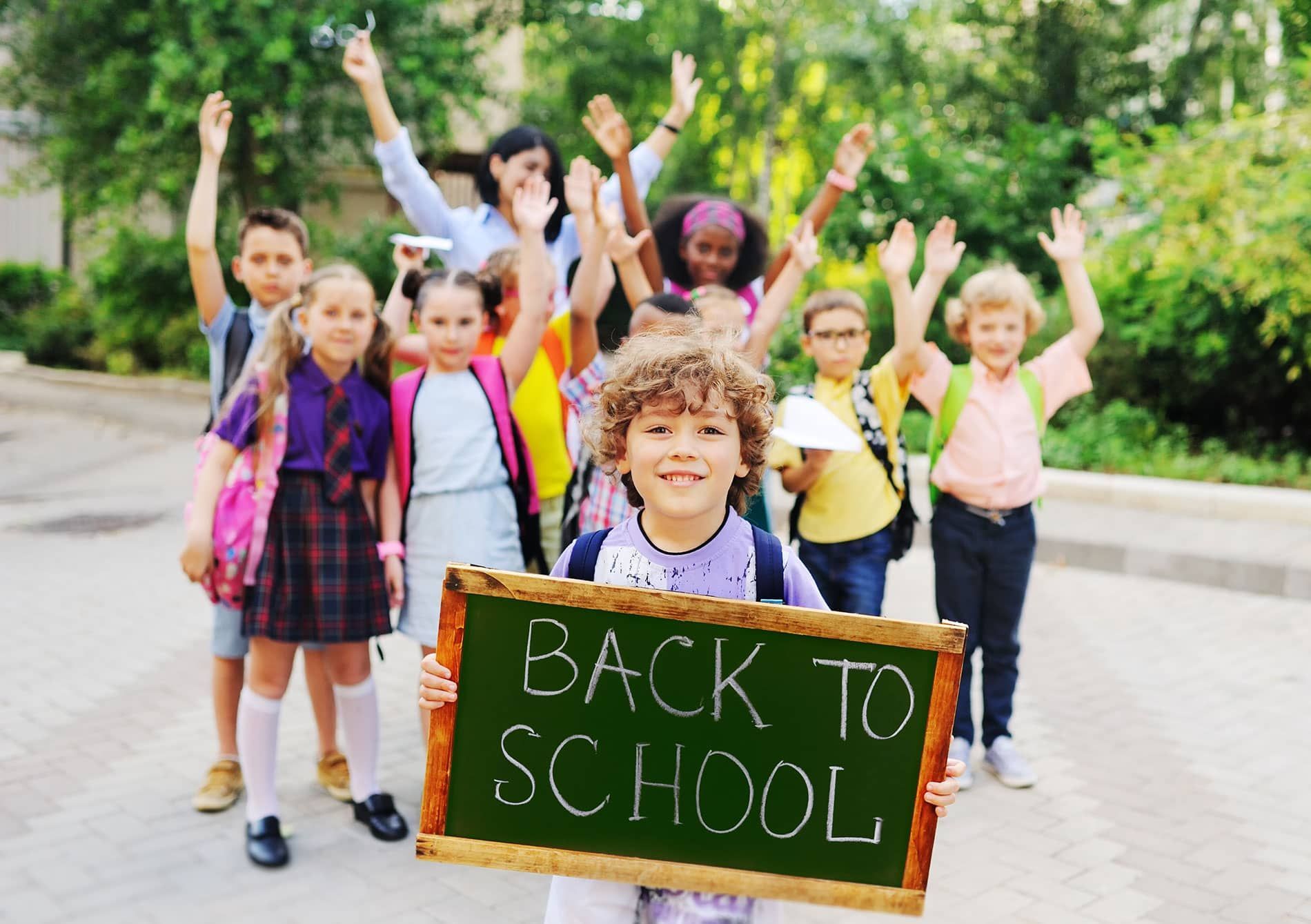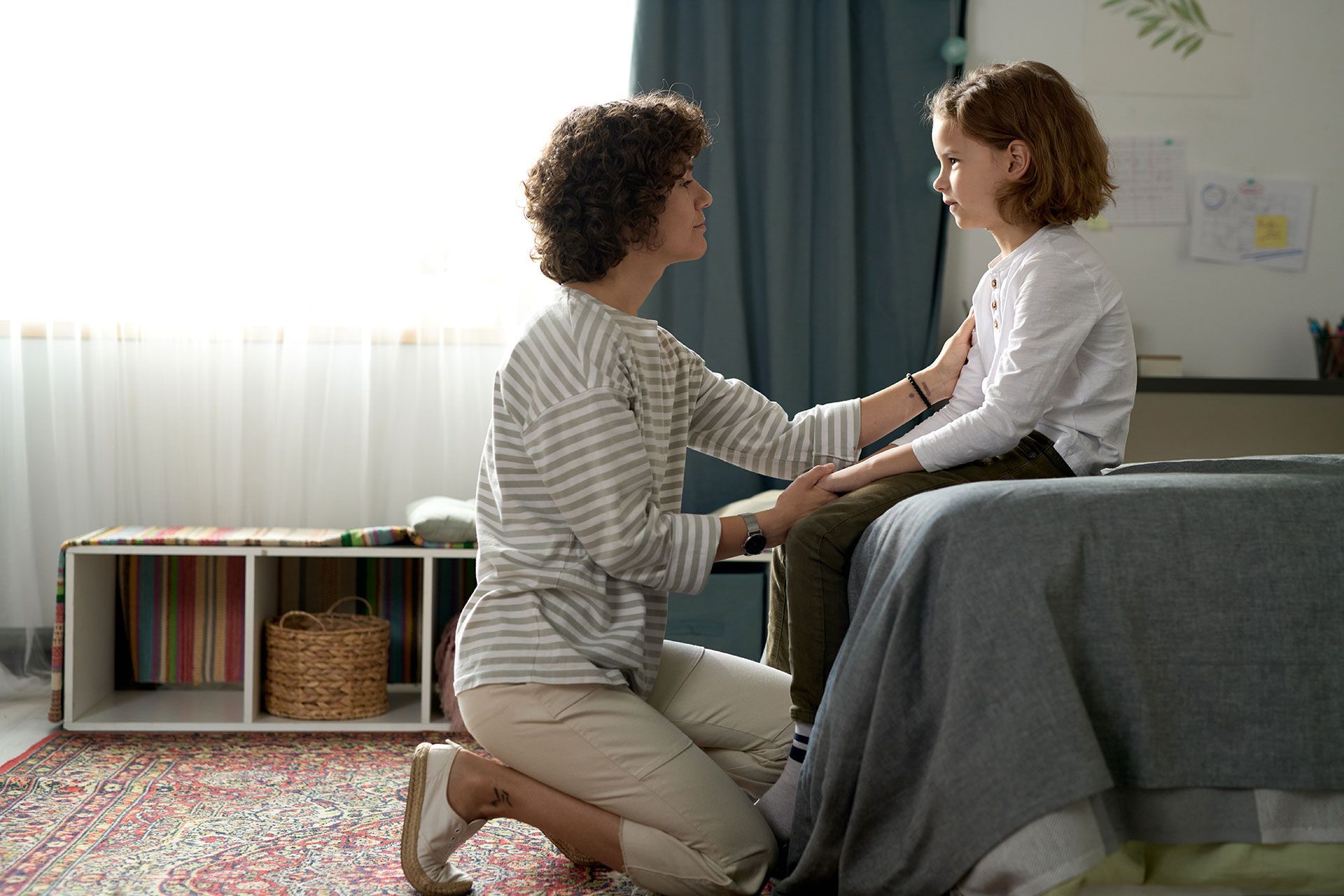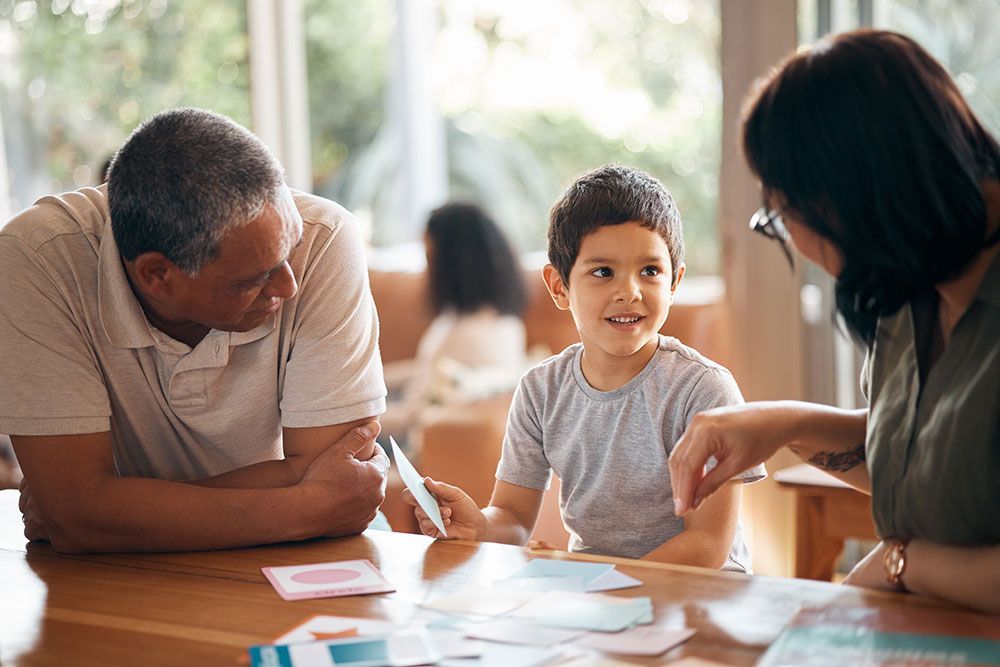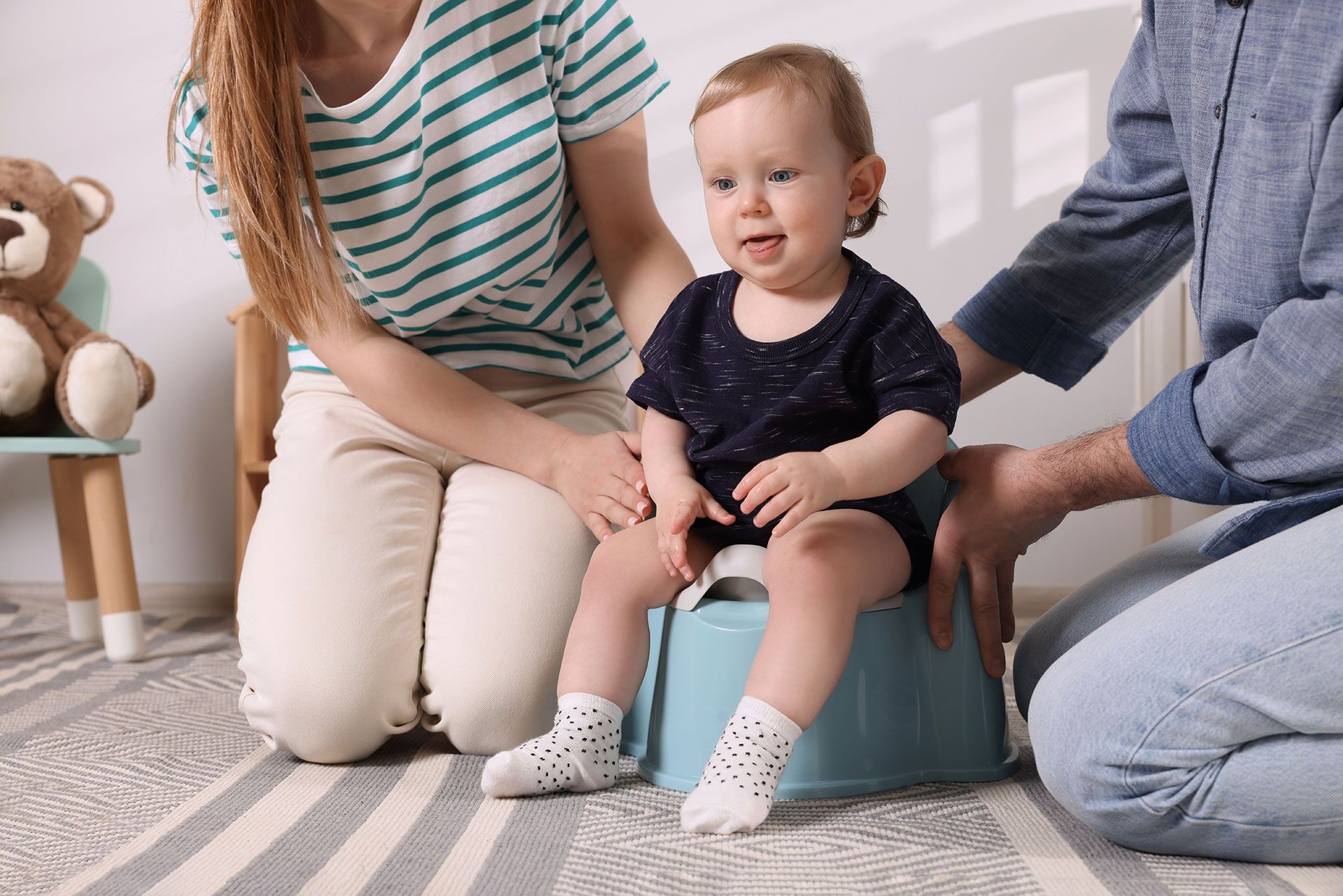5 Tips For Coping With Stress During The Holidays
November 29, 2018
- In-laws:
If you get along with your
in-laws, this should be a part of the holiday season you are looking forward
to. However, if you don’t have a “picture-perfect” relationship with your
beloved spouse’s family (or even if you do), sometimes in-laws add an extra layer
of stress to the holidays (unintentionally--of course!). Remember that creating
new traditions, blending traditions, or abandoning old traditions that don’t
quite fit with your new family dynamic can be hard on all of us. Things to
remember during this time:
No one is a mind reader. You must be able to effectively communicate what you need and what is important to you. To do this, speak from your own experience and what you’re feeling, rather than blaming or being accusatory. I have often heard, when in-laws come to town, parents can feel undermined as a parent. It can sometimes be difficult navigating different roles or family dynamics that are changing (for example: a mother visiting her adult son, new daughter-in-law and new grandbaby, and grandma may have a very “overpowering” presence in her opinions on how she feels you should parent or treat her son, but if you practice effective and respectful communication, they are usually much more receptive ).
If, in their minds, they are trying to do something fun for the holiday season (i.e., giving candy right before dinner), let them know how you feel in a way they can hear (i.e. when you disregard what I’ve asked my children to do, it makes me feel unimportant as their parent) and in-laws can be more receptive, because they will not feel as blamed and will understand why that is upsetting to you. Remember, this requires everyone to be flexible and understanding, as both parties will be making compromises.
- Traveling with family:
Traveling is
hard! For everyone, but especially for little ones. If you plan to travel this
holiday season, BE PREPARED
. Know
that your little one is going to get upset because sitting down staring at a
blank empty seat is difficult for all of us.
Make sure you pack enough things for them to do, but make sure it is things they like (this doesn’t necessarily mean an iPad!) Coloring books, reading books, word searches, sudoku, a small Lego set with a carrying case that is easily packable to travel between terminal(s) and gate(s) or card games are great things to bring. However, you know your child best. Find something that can keep their attention.
Also, if you do plan to travel, find a time that works best for your child. If it is usually when they nap or really in the morning when they are still asleep and are good sleepers , a flight around that time to ensure they sleep might be an option. Although, this can backfire. If it does, two things will happen. One, you’ll know for next time. And two, others are forgiving, and we have all been there. Give yourself a break and know that almost everyone on that flight understands your exact position traveling with an upset baby. There is only so much we can do!
Pack enough snacks for the plane to ensure that they will not get HANGRY on the plane. This will also keep costs down, so you will avoid having to purchase multiple snacks for your entire family after you pass through security or in the air (as they tend to be much pricier than their worth). Do not plan on packing liquids that will pass through airport security if you are traveling via air, or you will have a sad child if you have to throw away all of your packed beverages. Kiosks always have beverages available after you go through security. If you are driving somewhere, disregard this statement and pack PLENTY of waters!
- Self-care:
NEVER let your self-care
plan fall to the bottom, or worse, off the list. Time feels shorter during the
holidays and there never seems to be enough of it to get it all done. However,
the airplane oxygen mask analogy fits here perfectly; Place your own oxygen mask on before assisting others, meaning: if you
aren’t taking care of yourself, you can’t take care of others.
It doesn’t
matter how good the brownies are, if you aren’t there to watch and enjoy, they
might as well not be there at all. Continue
taking care of yourself during the season, remember your breathing techniques,
exercise regimen, and show yourself some grace if it doesn’t all get done.
- Social media craze: Don’t buy into the hype
of social media.
While everyone else’s holidays look perfect and happy, we
never know how many hands were there to help decorate and set up. We don’t know
the argument that happened right before or right after the picture was taken. For all we know, cousin Derek might have
forgotten to defrost the turkey in time, while Aunt Cindy forgot to buy salad
dressing for the salad, and no one put the Christmas sweater on the dog in time
for photos, so he jumped in the lake while trying to escape from uncle Jim
trying to chase him around the lawn with that sweater, and Fido will NOT be
included in the photos this year.
C’est La Vie
! We all put on best foot
forward on social media (and attempt at life). Dare to challenge those pictures
and remember, no one is perfect--nor is any holiday!
- Reason for the season: Remember why we are all together celebrating the holiday. Never forget what a privilege it is to be close to the ones you love. There are so many people who can not be with the ones they love, some have passed, some are deployed, or some are in hospitals, etc. Remember how lucky we are to be with one another on this holiday season, even if they do drive us a little crazy!
Lindsay McCarthy, LMFT-Associate, LCDC-Intern
Sarah Patterson, Intensive Treatment Program Manager
Progress reports are meant to keep parents in the loop but sometimes they bring more questions than answers. If your child’s grades don’t reflect their effort or intelligence, or if teachers are noting disruptive behaviors, it can be both confusing and frustrating. When to Be Concerned Sudden drop in grades: A sharp decline may point to more than just a “bad week.” Strong effort, low results: If your child studies but test scores don’t match, it could signal learning differences. Behavior changes at school: Acting out, constant distractions, or emotional outbursts can all interfere with academics. Consistent teacher concerns: Ongoing feedback about focus, homework, or social interactions deserves a closer look. Why It Happens Many factors can affect a child’s performance: ADHD or attention challenges Anxiety, stress, or depression Learning differences or processing issues Emotional struggles that aren’t obvious at home How We Can Help At The Woodlands Behavioral Health & Wellness Center , we provide: Neuropsychological Assessments to uncover learning, attention, or emotional challenges. Individual Therapy to help children develop coping skills and emotional regulation. Parent Guidance & Support so families can understand and respond to their child’s needs. Collaboration with Schools to advocate for the right supports and accommodations. Next Steps for Parents If your child’s progress report doesn’t match their potential or if behaviors are causing concern you don’t have to figure it out alone. As always, we invite you to start with a complimentary consultation to learn more about your child and the options available. Give us a call at 281-528-4226 or visit addwoodlands.com .

Parents often wonder how to help their young children build communication skills. Read on for a few tips to enhance your child’s language abilities. Children learn by watching and listening to others. Get in the habit of narrating your day as if you are a newscaster. o Describe aloud what you are doing: Example: While you are helping them get dressed, you could say “I am putting on your pants because it is cold outside.” o Narrate what your child is doing: Example: While they play, you could say, “You are picking up the tiles and making them stick together!” o Speak loudly and clearly, emphasizing important words. Example: During bath time, you could say “I’m washing your HAIR. Now I’m washing your BELLY.” (emphasizing the words) o Read with your child each day. Focus on labeling what you see and asking them questions about the story. o Imitate and reflect on words that your child uses, even if they aren’t perfect! Example: If your child says “car,” you could say, “Red car! The red car goes fast!” As a parent, you are likely very good at knowing what your child wants even if they don’t use words to tell you. o However, it is helpful to intentionally create situations where your child needs to use speech (or an attempt at it!) to communicate their needs. Example: Prompting them to ask for the snack they want by saying something like “tell me what you would like” or “you can say ‘more’ if you want more”. If they attempt to speak (e.g. “goh” for “goldfish”) give lots of praise and provide the desired snack. Require more speech each time for this activity (e.g. moving from “goh” to “gold” for “goldfish”).

It is hard to believe, but another school year is here! While exciting, the transition from relaxing summer vacation to busy back-to-school can be challenging. Read on for strategies to set your family up for success this school year. Plan ahead Before meeting the teacher, the first day of school, and any other milestones, talk with your child about what to expect. For children who have attended daycare or school before, talk about what will be the same as last year and what will be different. Help them to remember that, while many things will be different, many things will be familiar, too! When possible, tour or look at pictures of the school, classroom, teacher, and any friends that will be in the new class. 2. Listen Offer a non-judgmental space for your child to express their nerves, concerns, and hopes for these next few weeks. Try not to jump in too quickly by saying things like “don’t worry about that” or “stop it, it will be great!” While such statements come from a good place, they can feel dismissive to your child. Instead, work to validate their feelings and address their concerns together. 3. Make it fun One way to help guide your child through glass-half-empty statements such as, “I’m not going to have any friends in my class...it’s going to be the worst year ever!” is to play the “maybe game.” You could say, “That sounds really tough. I hear you – maybe that will happen...OR...maybe you will find a new friend and really like how your new teacher does things!” By validating their concerns instead of dismissing them, you offer space for both things to be true at the same time. 4. Re-frame Help your child to re-frame their worries as reflections of the care you have for each other and the trust that you will be there for them at the end of the day – no matter what. For example, if you think your little one might cry at drop off, you could say “It’s okay to cry and miss me at school after I leave. I will miss you too! That is because we love each other. I will be there to pick you up and can’t wait to hear all about your day. What toy do you think you will play with first?” 5. Empower Remember – your child is looking to you to gauge if they should be worried. Work to communicate confidence, instill bravery, and let them know that you know they can do it. If your little one thinks you are scared, they will have a much harder time pushing through. A brave parent is the most helpful way to ensure a brave child! 6. Wear your heart on your sleeve ...or your hand! One strategy to help young children with separation anxiety at drop off is to draw a heart on each of your hands. Tell your child that you can either kiss or tap your heart (or both!) during the day when you miss each other, knowing that the other person is feeling it too!
The journey to college isn’t a straight line, it’s a series of thoughtful choices that start earlier than most families realize. Whether you have an incoming freshman or a rising senior, here’s a quick roadmap to help guide the process:

One of the most difficult aspects of parenting toddlers is knowing how to manage the behaviors they exhibit as they learn to communicate their feelings. For many parents, biting and hitting are at the top of that list. Read on for tips on what to do when your child bites or hits... Self-talk . Say to yourself, “I don’t like that they bit/hit and hurt someone else, but I can teach them other ways to express their feelings.” Empathy. Ask yourself, “Wouldn’t I have a hard time expressing myself when I’m mad or upset if I didn’t have the language to do that, or the ability to problem solve in non-aggressive ways? I know how my child feels!” Teach . Young children learn very early that their hands and teeth are powerful weapons that elicit an equally powerful reaction when used. However, this can cause lots of problems for you and your child. The key is to teach your child that biting and hitting hurt and there are other ways to express feelings without hurting others. Tell yourself, “I can teach my child how to respect others and use words to express feelings. I know it will take time and patience, but they can learn.” When your child bites or hits, provide a brief teaching statement, such as “No bite. Biting hurts” and give them a word or action within their skill abilities to replace the biting. For example, “You can say ‘no hug’ instead” or “you can walk away.” When you do this, you are teaching your child how his behavior affects others and what else they can do instead. Reinforce. Practice by setting your phone timer for 5 minutes (or longer or shorter, depending on how long you think your child can play with another child without your motivating praise) and say, “When you have played gently with Jack until the phone timer sounds, we can read your favorite book together. You are getting along so well.” Offering a reward as an incentive for self-control discourages conflict. Praise. When children (even siblings) are getting along, it’s important to praise their effort frequently. Simple statements, such as, “Good taking turns,” or “You are playing so nicely together,” reminds them of the goal of getting along vs. fighting. Teach compromise. When conflict arises, say, “Let’s find a way to let both of you play with that toy. I’ll use my phone timer to tell us when it’s your turn to play with it.” Your child can learn patience as they wait their turn, as well as problem solving and compromise—instead of biting or hitting. What not to do: Don’t hurt your child. Biting/hitting back and spanking are all behaviors you don’t want them to learn, so don’t use them. Don’t overreact. Getting upset when your child bites or hits keeps you from problem solving. Keep yourself calm by using calming self-talk. Say to yourself, “This is a problem we can solve. I just need to stay calm to do it.” Don’t threaten. Threatening your child creates fear but doesn’t teach the behavior you want. Instead, simply say, “Let’s work on ways you can get what you want without hurting someone.” Source: Behavior Checker from the Raised with Love and Limits Foundation

As we prepare to celebrate Valentine’s Day, check out this month’s quick tip to share the love with your children and let them know how much you appreciate what they do! As you go about your day, talk to your child’s stuffed animals or other family members about all of the wonderful things they do. While praising your child directly - such as, “you did a great job staying calm” - is always beneficial, speaking positively about them to others can be equally powerful. As you are helping them get ready in the morning, you could say “wow, I am so proud of Alex for starting to brush his teeth all by himself!” While supervising your children playing, you could say “Olivia and Emma are such thoughtful sisters. I love watching them problem-solve and work together!” As you and your partner prepare for the bedtime routine, you can playfully “fight over” who gets to put your child to bed. For example, “I want to do it!” and “I also want to do it - I just love spending time together!” The words your child hears you speak about them to others can become part of their internal monologue. Make the most of the little moments and share the love with everyone (and everything) around you!






